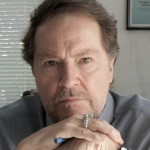The reasons for such censorship vary widely from political correctness, safety concerns and bullying to national security and hate crimes but the end result remains the same: the complete eradication of what Benjamin Franklin referred to as the "principal pillar of a free government."
Officials at the University of Tennessee, for instance, recently introduced an Orwellian policy that would prohibit students from using gender specific pronouns and be more inclusive by using gender "neutral" pronouns such as ze, hir, zir, xe, xem and xyr, rather than he, she, him or her.
On many college campuses, declaring that "America is the land of opportunity" or asking someone "Where were you born?" are now considered microaggressions, "small actions or word choices that seem on their face to have no malicious intent but that are thought of as a kind of violence nonetheless." Trigger warnings are also being used to alert students to any material or ideas they might read, see or hear that might upset them.
More than 50 percent of the nation's colleges, including Boston University, Harvard University, Columbia University and Georgetown University, subscribe to "red light" speech policies that restrict or ban so-called offensive speech, or limit speakers to designated areas on campus. The campus climate has become so hypersensitive that comedians such as Chris Rock and Jerry Seinfeld refuse to perform stand-up routines to college crowds anymore.
What we are witnessing is an environment in which political correctness has given rise to "vindictive protectiveness," a term coined by social psychologist Jonathan Haidt and educational First Amendment activist Greg Lukianoff. It refers to a society in which "everyone must think twice before speaking up, lest they face charges of insensitivity, aggression or worse."
This is particularly evident in the public schools where students are insulated from anything--words, ideas and images--that might create unease or offense. For instance, the thought police at schools in Charleston, South Carolina, have instituted a ban on displaying the Confederate flag on clothing, jewelry and even cars on campus.
Added to this is a growing list of programs, policies, laws and cultural taboos that defy the First Amendment's safeguards for expressive speech and activity. Yet as First Amendment scholar Robert Richards points out, "The categories of speech that fall outside of [the First Amendment's] protection are obscenity, child pornography, defamation, incitement to violence and true threats of violence. Even in those categories, there are tests that have to be met in order for the speech to be illegal. Beyond that, we are free to speak."
Technically, Richards is correct. On paper, we are free to speak.
(Note: You can view every article as one long page if you sign up as an Advocate Member, or higher).





